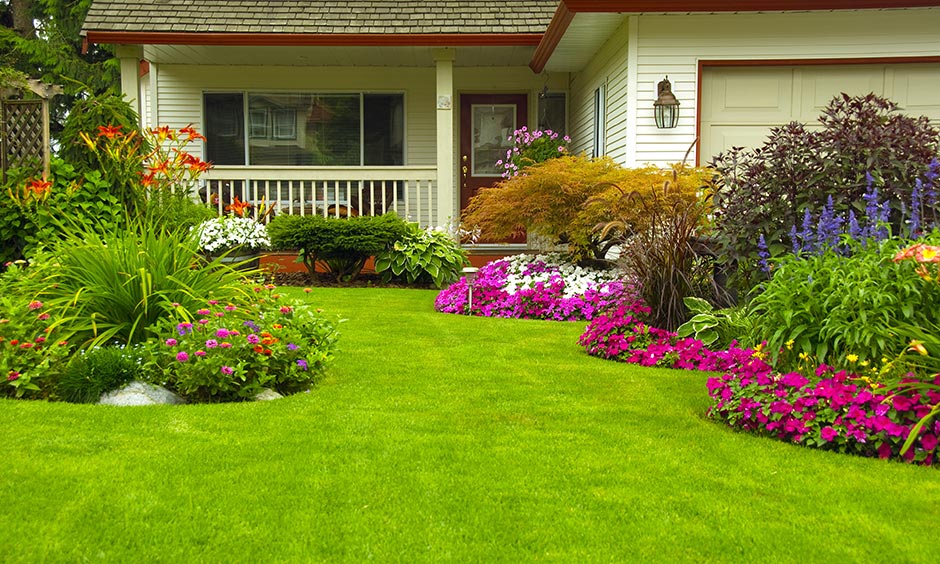A home garden is a rewarding undertaking that promises a haven of beauty and richness just outside your door. For those who embark on the journey of developing their home garden, it is a rewarding endeavor. It is vital to equip yourself with the appropriate tools, knowledge, and techniques to guarantee that your garden will survive and flourish at all times. This all-encompassing guide will delve into nine fundamentals that will serve as the basis for a gardening experience that is both effective and rewarding.
Quality Soil
If you want your garden to thrive, the soil must be perfect. You can choose high-quality soil that has good drainage, is abundant in nutrients, and is alive with microorganisms that are beneficial to your plants. Create an atmosphere that is ideal for the growth of plants by doing a soil test to determine the pH levels and nutrient content of the soil and then making any required adjustments to the soil.
Appropriate Equipment
A gardener needs the appropriate tools to cultivate their masterpiece, just as a painter needs brushes and a canvas to create their masterpiece. Spend money on gardening tools of good quality, such as a robust trowel, hand pruners that are sharp, and a garden fork that is long-lasting. Battery powered garden sprayers are also extremely portable, in contrast to traditional pump sprayers, which require the user to pump the sprayer to pressurize it manually and can be operated with the simple pressing of a button. This enables gardeners to roam freely around the garden without being attached to a pump or power source, which makes it simpler for them to access plants located in various parts of the garden.
Sunlight
The sun’s rays not only provide the plants with the energy they need to carry out their photosynthetic operations but also encourage balanced growth. You can aim for a part of your garden that receives at least six hours of sunshine every day. It is recommended that you investigate shade-tolerant plant kinds or consider cutting surrounding trees to increase the amount of sunshine that can penetrate your garden.
Watering System
Watering your plants regularly and in sufficient amounts is of the utmost importance for their health. Determine the type of watering system that will be most effective for your garden, whether it be a drip irrigation system, soaker hoses, or manual watering with a watering can or hose. Delivering water directly to the root zone is crucial for optimizing water consumption and minimizing evaporation losses.
Mulch
The application of mulch in the garden is a miracle of multitasking, as it provides a wide range of advantages. You may improve the fertility of your soil, save moisture, reduce weeds, and regulate soil temperature by applying organic mulch to your garden beds. Some examples of organic mulch are straw, shredded leaves, and wood chips, among others. The gradual decomposition of the mulch results in the enrichment of the soil, which in turn creates an environment that is rich in nutrients for the growth of your plants.
Composting
To nourish your garden and complete the cycle of organic waste, you can embrace the transformational potential of compost. Create nutrient-dense compost by establishing a composting system in your garden. This system can make use of organic resources such as yard clippings, food leftovers, and other organic items. It is important to incorporate compost into your soil regularly to improve its structure, fertility, and microbial activity, which will ultimately result in optimal plant development.
Selection Of Plants
It would help if you were careful while selecting the occupants of your garden, making sure to pick plants that are suitable for the temperature, soil type, and growing conditions of your garden. As you curate your plant palette, you can take into consideration a variety of criteria, including sun exposure, water requirements, and mature size. The best way to create a vivid tapestry of color and vitality in your garden is to embrace diversity by mixing a variety of plants, including annuals, perennials, vegetables, herbs, and native species, with each other.
Pesticides And Insecticides
The most important thing you can do to protect your garden from diseases and pests that could compromise its health is to be vigilant. These strategies can include regular monitoring, cultural practices, and biological interventions. Establishing a healthy ecosystem in your garden can be accomplished by encouraging the presence of beneficial insects, engaging in crop rotation, and adopting proper garden cleanliness to reduce the number of instances of pests and diseases.
Regular Management
The key to a flourishing garden is proper care and maintenance. To preserve your garden in the best possible shape, you can set aside some time to perform basic maintenance duties such as weeding, pruning, fertilizing, and deadheading. Maintain an awareness of the requirements of your plants by monitoring them regularly for indications of stress, nutrient deficiencies, or insect infestations, and you can take preventative actions to remedy any problems as soon as they arise.
In any comprehensive home and garden maintenance plan, ensuring effective pest control is crucial. Greenix Pest Control, serving Naperville, Illinois, offers professional services to help homeowners keep their properties free from pests. By incorporating pest control measures into your routine maintenance, you can protect your home and garden from unwanted intruders and potential damage. Trust Greenix to provide reliable solutions tailored to your specific needs, ensuring a pest-free environment for you and your family to enjoy both indoors and outdoors.
Conclusion
When it comes to creating a thriving home garden, incorporating essential elements can make all the difference. From selecting the right plants to ensuring proper irrigation and maintenance, each aspect contributes to the overall success of your outdoor space. For valuable insights and expert advice on optimizing your garden, consider exploring additional resources as noted by Drake’s 7 Dees. These insights can provide valuable guidance to help you create a beautiful and flourishing garden that you can enjoy for years to come.
To achieve mastery in the art of home gardening, one must possess a combination of knowledge, enthusiasm, and attention to detail. You will be well-equipped to create a flourishing paradise of greenery and beauty right in your backyard if you embrace these nine basics. These essentials include nourishing your soil and choosing the appropriate plants, as well as establishing effective watering systems and exercising careful insect control. Happy gardening, and may your garden be blessed with an abundance of success!
James Martin is a passionate writer and the founder of OnTimeMagazines & EastLifePro. He loves to write principally about technology trends. He loves to share his opinion on what’s happening in tech around the world.


